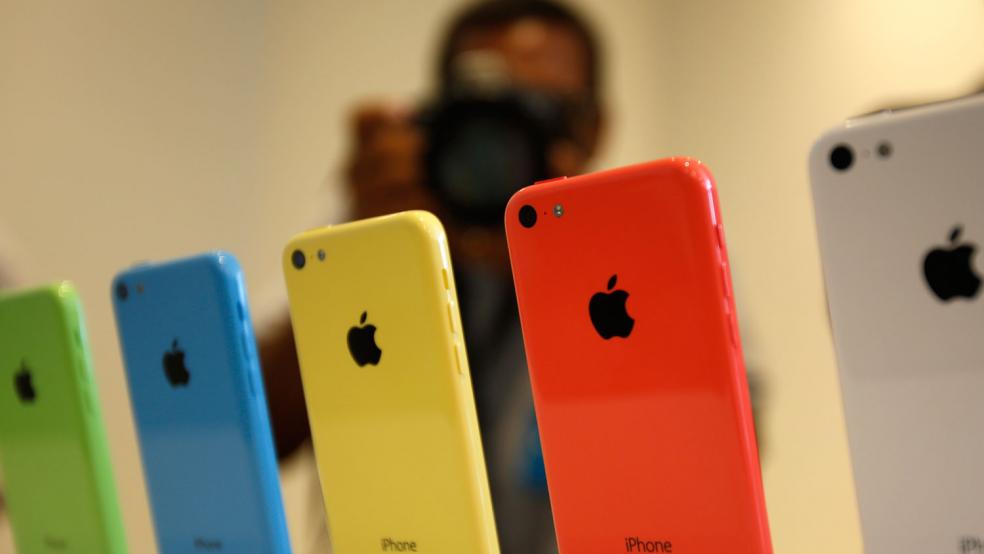Apple’s two new iPhones, announced to much fanfare Tuesday, have landed with a bit of a thud. The devices, despite some enhanced features, failed to truly wow gadget geeks. Many of the details about the phones had leaked out or been rumored for months, leaving few surprises for Tuesday’s presentation. At the same time, the strategy behind the new devices failed to impress many analysts – who were surprised, unpleasantly, by the pricing of the iPhone 5C.
Wall Street Bought the Rumor, Sold the News
Apple’s share price had climbed nearly 30 percent since late June, helped by anticipation for its new releases – and a pair of tweets from Carl Icahn last month in which the activist investor revealed he had taken “a large position” in the stock and was pushing the company to buy back more shares. That investor optimism faded quickly once the new devices were announced. Analysts at Bank of America, Credit Suisse, J.P. Morgan and UBS all downgraded the stock, which plunged about 5 percent Wednesday, adding to a 2 percent slide on Tuesday. The stock, which had broken back above $500 in recent weeks, had fallen back to $470.
So the ‘C’ Doesn’t Stand for Cheap
The slew of downgrades came, in large part, in response to the pricing of the colorful new polycarbonate-backed iPhone 5C. In the U.S., Apple will sell 16GB versions of the devices for $549 and 32GB versions for $649 to customers who don’t sign a service contract with a wireless carrier. Those prices are just $100 less than the supposedly high-end iPhone 5S – and they’re far higher than the $400 or so that many on Wall Street were expecting if Apple was really going to make a push to grow its presence in China and other emerging markets. “So much for the low end,” Credit Suisse analysts wrote on Wednesday, while also noting that the specs of Apple’s new phones are “not quite on par” with high-end competitors.
And It Doesn’t Stand for China, Either
Apple did announce that it had gotten approval to run its devices on China Mobile’s network, potentially allowing it to reach the carrier’s 700 million subscribers. Yet it didn’t announce a formal deal with China Mobile to start selling its phones right away, and given its iPhone 5C pricing, UBS analyst Steven Milunovich said that Apple could struggle to make gains against much cheaper Android phones in China even once it does land that deal.
Milunovich noted that the 5C prices could cut into sales of the 5S rather than expand Apple’s appeal to lower-end buyers. “Those prices would appear to maximize the risk of cannibalization and minimize emerging market penetration,” Milunovich wrote in downgrading Apple from Buy to Neutral. “Apple seems to be protecting its premium brand and margins at the expense of market share.” Steve Jobs may be gone, but his pricing playbook for Apple lives on.




